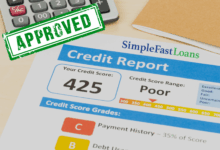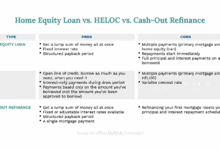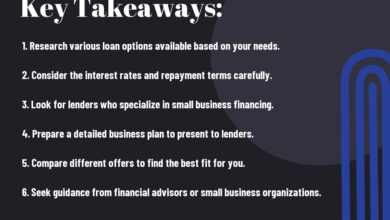Efficient Cash Loan Solutions For Your Financial Needs
Cash loan sets the stage for this enthralling narrative, offering readers a glimpse into a story that is rich in detail with formal and friendly language style and brimming with originality from the outset.
When it comes to managing your finances effectively, cash loans can be a valuable resource to address immediate monetary requirements. Whether you are facing unexpected expenses or need funds for a significant purchase, understanding the nuances of cash loans is crucial for making informed decisions.
Recipe for Chocolate Chip Cookies
To make delicious chocolate chip cookies, follow this step-by-step guide to achieve the perfect balance of sweetness and crunchiness.
Ingredients
- 2 1/4 cups all-purpose flour
- 1/2 teaspoon baking soda
- 1 cup unsalted butter, softened
- 1/2 cup granulated sugar
- 1 cup packed brown sugar
- 1 teaspoon salt
- 2 teaspoons vanilla extract
- 2 large eggs
- 2 cups semisweet chocolate chips
Baking Instructions
Preheat your oven to 350°F (175°C) and line a baking sheet with parchment paper.
- In a medium bowl, whisk together the flour and baking soda until well combined.
- In a separate large bowl, cream together the butter, granulated sugar, brown sugar, salt, and vanilla extract until smooth.
- Beat in the eggs one at a time, then gradually blend in the flour mixture. Stir in the chocolate chips.
- Drop rounded tablespoons of dough onto the prepared baking sheet.
- Bake in preheated oven for 10 to 12 minutes, or until the edges are golden brown.
- Let the cookies cool on the baking sheet for a few minutes before transferring to a wire rack to cool completely.
Texture of Cookie Dough
- The cookie dough should be slightly sticky but not overly wet or dry. It should hold its shape when formed into balls.
Variations
- Try adding chopped nuts like walnuts or pecans for added crunch.
- For a fruity twist, mix in dried cranberries or raisins along with the chocolate chips.
Tips for Perfect Cookies
- Avoid overmixing the dough to prevent tough cookies. Mix until just combined.
- For a golden-brown color, bake the cookies until the edges are slightly browned, but the center is still soft.
- Cooling the cookies on the baking sheet allows them to set without becoming too crisp.
Types of Cash Loans
When in need of quick cash, there are various types of cash loans available to consider. Each type has its own features and suitability for different situations.
Payday Loans
- Payday loans are short-term loans typically due on your next payday.
- They usually have high interest rates and fees.
- Suitable for emergency expenses or unexpected bills.
Installment Loans
- Installment loans allow you to borrow a set amount of money and repay it in fixed monthly installments.
- Interest rates may vary, but they are usually lower than payday loans.
- Best for larger expenses or planned purchases.
Title Loans
- Title loans require you to use your vehicle as collateral for the loan.
- They often have high interest rates and short repayment terms.
- Suitable for those who own a vehicle and need quick cash but have poor credit.
Application Process
When applying for a cash loan, it is essential to understand the steps involved and the necessary documentation required to ensure a smooth and successful process.
Researching and Comparing Lenders
- Research online and compare different lenders based on interest rates, terms, and eligibility criteria.
- Read customer reviews and testimonials to gauge the reputation and reliability of the lenders.
- Consider factors like customer service, ease of application, and transparency in loan terms.
Documentation Required
- Prepare proof of income documents such as pay stubs, tax returns, or bank statements.
- Gather identification documents like a driver’s license, passport, or state ID.
- Check your credit history report to ensure accuracy and address any discrepancies.
Tips for a Successful Application
- Maintain a good credit score by paying bills on time and reducing outstanding debt.
- Create a detailed budget plan to demonstrate your ability to repay the loan.
- Submit all required documents accurately and promptly to avoid delays in the approval process.
Comparison Table of Lenders
| Lender | Interest Rate | Terms | Eligibility Criteria |
|---|---|---|---|
| Lender A | 8% | 12 months | Minimum credit score of 650 |
| Lender B | 10% | 18 months | Proof of stable income |
| Lender C | 12% | 24 months | No minimum credit score requirement |
Customer reviews praise Lender A for their competitive interest rates and excellent customer service.
Lender B offers flexible terms and quick approval process, according to customer testimonials.
Lender C is recommended for borrowers with lower credit scores due to their lenient eligibility criteria.
Eligibility Criteria
To qualify for a cash loan, individuals must meet certain eligibility criteria set by the lender. These criteria help determine the applicant’s ability to repay the loan and manage their finances responsibly.
Common Eligibility Criteria
- Minimum age requirement (usually 18 years old)
- Steady source of income
- Valid identification documents
- Active bank account
Impact of Credit Scores
Having a good credit score can increase the chances of approval for a cash loan. Lenders use credit scores to assess the borrower’s creditworthiness and their likelihood of repaying the loan on time. A higher credit score usually indicates responsible financial behavior, while a lower credit score may result in higher interest rates or denial of the loan.
Specific Requirements for Different Types of Cash Loans
- Payday Loans: Typically require proof of employment and a post-dated check for the loan amount.
- Installment Loans: May require a higher credit score and longer employment history.
- Title Loans: Need a clear vehicle title as collateral for the loan.
Interest Rates and Fees
When it comes to cash loans, understanding the interest rates and fees involved is crucial in determining the total cost of borrowing and finding the best loan option for your needs.
Interest Rate Calculation
Interest rates for cash loans can be calculated in two main ways: fixed rates and variable rates. Fixed rates remain the same throughout the loan term, providing predictable monthly payments. On the other hand, variable rates can fluctuate based on market conditions, potentially leading to changes in your monthly payments.
Common Fees
There are several common fees associated with cash loans that borrowers should be aware of. These may include origination fees, prepayment penalties, and transaction fees. These fees can significantly impact the total cost of borrowing and should be carefully considered when comparing loan options.
Tips for Comparing Rates and Fees
To effectively compare interest rates and fees when choosing a cash loan, it is essential to create a comparison chart. Include the APR, total repayment amount, and any additional fees for each loan option. This will allow you to make an informed decision based on the total cost of borrowing.
Credit Scores Impact
Credit scores play a crucial role in determining the interest rates and fees associated with cash loans. A higher credit score typically leads to lower interest rates and fees, while a lower credit score may result in higher costs. It is important to understand how your credit score can impact the overall cost of borrowing and take steps to improve it if necessary.
Repayment Terms
Repayment terms for cash loans play a crucial role in the overall financial management of borrowers. Understanding these terms is essential to avoid potential consequences and manage repayments effectively.
Typical Repayment Terms
- Interest Rates: Cash loans typically come with fixed or variable interest rates. Fixed rates remain constant throughout the loan term, while variable rates may change based on market conditions.
- Payment Frequency: Borrowers usually make monthly payments towards their cash loans. Some lenders may offer bi-weekly or quarterly payment options as well.
- Loan Duration: The duration of a cash loan varies depending on the amount borrowed and the lender’s terms. It can range from a few months to several years.
Consequences of Defaulting
- Impact on Credit Score: Defaulting on a cash loan can severely damage your credit score, making it challenging to secure credit in the future.
- Additional Fees: Lenders may impose late fees or penalties for missed payments, increasing the overall cost of the loan.
- Potential Legal Actions: In extreme cases of default, lenders may take legal action to recover the outstanding amount, leading to court proceedings or asset seizure.
Strategies for Effective Repayments
- Create a Budget: Develop a detailed budget to allocate funds for loan repayments and prioritize them to avoid missing payments.
- Set Up Automatic Payments: Consider setting up automatic payments to ensure timely and consistent repayments without the risk of forgetting or missing a payment.
- Contact the Lender: If facing financial difficulties, reach out to the lender to discuss alternative repayment options or temporary relief measures.
Comparison of Repayment Options
- Fixed Monthly Payments: Offer stability with consistent payment amounts throughout the loan term.
- Variable Interest Rates: Can lead to fluctuating payments based on market conditions, potentially affecting budget planning.
- Early Repayment: Some loans allow early repayment without penalties, enabling borrowers to save on interest costs and pay off the loan sooner.
Pros and Cons of Cash Loans
When considering taking out a cash loan, it is important to weigh the advantages and disadvantages to make an informed decision.
Advantages of Cash Loans
- Quick access to funds in times of urgent financial need.
- No restrictions on how the funds can be used, providing flexibility.
- Simple application process with minimal documentation required.
- Can help build or improve credit score if repayments are made on time.
Drawbacks of Cash Loans
- Higher interest rates compared to traditional loans, leading to increased overall repayment amount.
- Potential for debt cycle if unable to repay on time, resulting in additional fees and charges.
- May have limited loan amounts based on income and credit history.
- Some lenders may use aggressive collection tactics if payments are missed.
Tips for Making an Informed Decision
- Evaluate your financial situation and only borrow what you can afford to repay.
- Compare offers from multiple lenders to find the best terms and rates.
- Read and understand the terms and conditions of the loan agreement before signing.
- Create a repayment plan to ensure timely payments and avoid additional fees.
Alternatives to Cash Loans
When considering financial options, it’s essential to explore alternatives to cash loans that may better suit your needs and financial situation. Let’s compare the pros and cons of cash loans with other financial products like credit cards and personal lines of credit to help you make an informed decision.
Credit Cards
- Credit cards offer a revolving line of credit that can be used for various expenses.
- They often come with rewards programs, cashback offers, and other benefits.
- Interest rates on credit cards can be high if the balance is not paid in full each month.
- Using credit cards responsibly can help build your credit score.
Personal Lines of Credit
- Personal lines of credit provide flexibility in borrowing amounts and repayment terms.
- Interest rates on personal lines of credit are usually lower than those of cash loans.
- They can be used for various purposes, such as home renovations, education expenses, or unexpected emergencies.
- Approval for a personal line of credit may require a higher credit score than a cash loan.
Situations where an Alternative Financial Product may be more Suitable
- If you have a stable income but need occasional short-term financing, a credit card may be a more suitable option.
- For larger expenses with a longer repayment period, a personal line of credit could offer more flexibility and lower interest rates compared to a cash loan.
- If you are looking to consolidate high-interest debt, a personal line of credit might be a better option to save on interest costs.
Impact on Credit Score
When taking out a cash loan, it is important to be aware of how it can affect your credit score. Here are some key points to consider:
How Cash Loans Impact Credit Score
- Cash loans are typically considered as a form of debt, which can affect your credit utilization ratio.
- Missed or late payments on cash loans can significantly lower your credit score.
- Applying for multiple cash loans within a short period can result in multiple hard inquiries on your credit report, which may lower your score.
Strategies for Minimizing Negative Effects
- Make timely payments on your cash loans to avoid negative impacts on your credit score.
- Avoid taking out multiple cash loans at the same time to prevent a high number of hard inquiries on your credit report.
- Consider alternative options like personal loans or credit cards with lower interest rates to minimize the impact on your credit.
Tips for Using Cash Loans Responsibly
- Borrow only what you need and can afford to repay to prevent defaulting on the loan.
- Create a budget to ensure you can make timely payments on your cash loan without affecting your credit score.
- Monitor your credit report regularly to identify any errors or discrepancies that may be impacting your credit score negatively.
Regulations and Consumer Protection
In the cash loan industry, there are specific regulations in place to protect both borrowers and lenders. These regulations ensure fair practices and transparency in the lending process.
Regulations Governing the Cash Loan Industry
- The Truth in Lending Act (TILA) requires lenders to disclose the terms and costs of a loan to borrowers in a clear and understandable manner.
- The Consumer Financial Protection Bureau (CFPB) oversees and enforces federal consumer protection laws, including those related to cash loans.
- State laws also play a significant role in regulating the cash loan industry, with many states imposing caps on interest rates and fees.
Consumer Protection Laws for Cash Loans
- The Fair Debt Collection Practices Act (FDCPA) prohibits abusive and unfair debt collection practices by third-party debt collectors.
- Borrowers have the right to dispute any inaccuracies in their credit reports under the Fair Credit Reporting Act (FCRA).
- The Equal Credit Opportunity Act (ECOA) prohibits discrimination in lending based on factors like race, gender, or marital status.
Ensuring Borrower Rights and Dealing with Reputable Lenders
- Before taking out a cash loan, borrowers should research the lender, check for any complaints or legal actions against them, and ensure they are licensed to operate in their state.
- Review all loan documents carefully, including the terms and conditions, interest rates, and fees, to ensure full understanding of the agreement.
- If a borrower feels their rights have been violated or they have been subjected to unfair practices, they can file a complaint with the CFPB or seek legal assistance.
Borrowing Responsibly
When it comes to borrowing money through cash loans, it is essential to do so responsibly to avoid financial difficulties down the line. Here are some guidelines to help you navigate the process:
Understanding Loan Terms and Conditions
- Read and understand the terms and conditions of the loan agreement thoroughly before signing.
- Pay attention to the interest rates, fees, repayment terms, and any penalties for late payments.
- Seek clarification from the lender if there are any aspects of the loan agreement that are unclear to you.
Evaluating Financial Situation
- Assess your current financial situation to determine if taking out a cash loan is a viable option.
- Create a budget to understand how the loan repayments will fit into your existing financial commitments.
- Consider alternative sources of funding or assistance if the loan amount is beyond your means to repay.
Comparing Lenders
- Research and compare different lenders to find the most favorable terms for your cash loan.
- Look for reputable lenders with transparent terms and good customer reviews.
- Consider the total cost of the loan, including interest and fees, before making a decision.
Consequences of Defaulting
- Understand the potential consequences of defaulting on a cash loan, including damage to your credit score.
- Contact your lender immediately if you anticipate difficulties in making repayments to discuss alternative arrangements.
- Explore debt consolidation or refinancing options to manage multiple debts effectively.
Creating a Repayment Plan
- Develop a detailed repayment plan and timeline to ensure timely payments on your cash loan.
- Set realistic goals and milestones to track your progress and stay on top of your financial obligations.
- Seek financial counseling or advice if you need assistance in managing your debt and finances effectively.
Wise Decision Making
- Taking out a cash loan may be a wise decision when used for essential expenses or emergencies.
- Avoid using cash loans for non-essential purchases or extravagant spending to prevent unnecessary debt accumulation.
- Consider the long-term implications of borrowing and ensure it aligns with your overall financial goals.
Case Studies
In this section, we will explore real-life scenarios of individuals who have utilized cash loans. We will discuss the outcomes, challenges, and lessons learned from these case studies, analyzing the decision-making process and financial implications of taking out a cash loan in each case. We will compare and contrast the reasons why each individual chose to take out a cash loan, providing a breakdown of the loan terms, interest rates, and repayment schedules for each case study. Furthermore, we will evaluate the impact of the cash loans on the overall financial health and well-being of the individuals involved, considering alternative financial options that could have been pursued instead of taking out a cash loan in each scenario.
Case Study 1
- Individual: Sarah
- Outcome: Sarah successfully used a cash loan to cover unexpected medical expenses, avoiding financial stress.
- Challenges: Sarah had to carefully budget to ensure timely repayment of the loan without sacrificing other essential expenses.
- Lessons Learned: Sarah realized the importance of having an emergency fund for future unexpected expenses.
- Loan Terms: $1000 loan with a 15% interest rate, to be repaid in 3 months.
- Financial Impact: The cash loan provided relief in a time of need but required careful financial planning.
Case Study 2
- Individual: John
- Outcome: John utilized a cash loan to consolidate high-interest debt and improve his credit score.
- Challenges: John had to adjust his spending habits to ensure timely repayment of the loan while managing his other financial obligations.
- Lessons Learned: John understood the importance of responsible borrowing and financial discipline.
- Loan Terms: $5000 loan with a 20% interest rate, to be repaid in 6 months.
- Financial Impact: The cash loan helped John improve his credit score and achieve better financial stability.
Tips for Improving Financial Health
Financial health is crucial in maintaining stability and avoiding the need for cash loans. By following these tips, individuals can work towards a more secure financial future.
Building an Emergency Fund
Having an emergency fund is essential to cover unexpected expenses without resorting to loans. Start by setting aside a portion of your income each month into a separate savings account dedicated solely to emergencies.
Managing Expenses Effectively
Create a budget outlining your income and expenses to identify areas where you can cut back. Limit unnecessary spending, prioritize essential bills, and look for ways to save on regular expenses like groceries and utilities.
Seeking Financial Education and Assistance
Take advantage of resources available for financial education, such as workshops, courses, or online tools. Additionally, consider seeking assistance from financial advisors or credit counselors if you are struggling with debt management.
Future Trends in Cash Loans
Artificial intelligence, blockchain technology, big data analytics, peer-to-peer lending platforms, machine learning algorithms, social media data, and mobile banking apps are shaping the future of cash loans.
Artificial Intelligence Impact
Artificial intelligence is revolutionizing the cash loan industry by enabling lenders to automate loan processing, improve risk assessment, and personalize loan offers based on borrower data.
Blockchain Revolution
Blockchain technology has the potential to streamline the process of issuing and managing cash loans by providing secure, transparent, and immutable records of loan transactions, reducing fraud and operational costs.
Big Data Analytics for Creditworthiness
Big data analytics plays a crucial role in assessing creditworthiness for cash loans by analyzing vast amounts of data to determine the borrower’s risk profile, repayment capacity, and likelihood of default.
Peer-to-Peer Lending Platforms
Peer-to-peer lending platforms are reshaping the landscape of cash loans by connecting borrowers directly with individual investors, offering competitive interest rates, flexible terms, and quick loan approvals.
Ethical Implications of Machine Learning
Using machine learning algorithms to determine loan eligibility raises ethical concerns regarding data privacy, algorithm bias, and transparency in decision-making, highlighting the importance of fair lending practices.
Social Media Data and Borrower Behavior
Social media data is increasingly used to predict borrower behavior and loan repayment patterns, providing lenders with additional insights into the creditworthiness and financial behavior of potential borrowers.
Mobile Banking Apps Opportunities
Mobile banking apps present both challenges and opportunities in the cash loan sector, offering convenient loan application processes, real-time account access, and personalized financial management tools to borrowers on-the-go.
Closing Notes
In conclusion, exploring the realm of cash loans unveils a world of financial possibilities where informed choices can pave the way for a secure financial future. By grasping the intricacies of cash loans and their implications, individuals can navigate the borrowing landscape with confidence and prudence.






